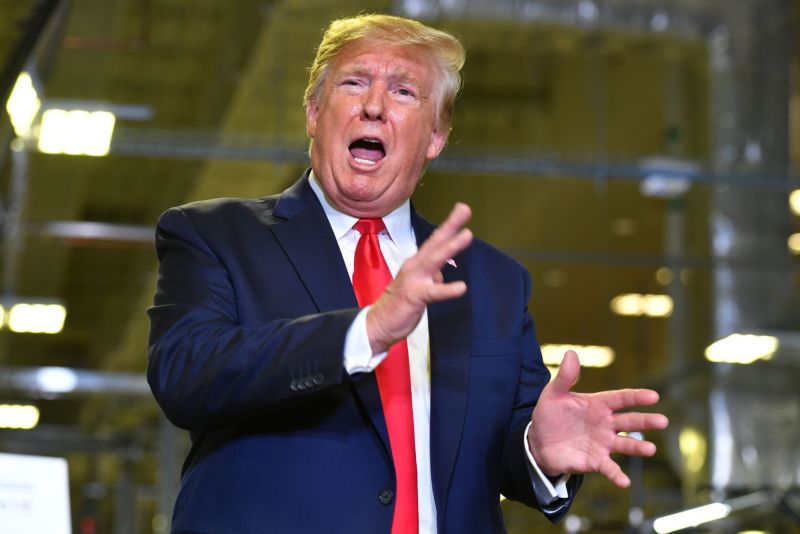
Enlarge / US President Donald Trump speaks about the impeachment inquiry during a tour of the Flextronics computer manufacturing facility where Apple's Mac Pros are assembled in Austin, Texas, on November 20, 2019. Now, he's ranting about Apple being unpatriotic. (credit: MANDEL NGAN/AFP via Getty Images)
On the eve of the House of Representatives' forwarding of articles of impeachment to the Senate, President Donald Trump took time to attack Apple. The president's outburst on Twitter appears to be about the FBI's inability to get access to the physical storage on two iPhones connected to last month's killings at Naval Air Station Pensacola in Florida. And it is the latest ratcheting up of rhetoric from the Trump administration on device encryption.
The phones are believed by the FBI to have been the property of Mohammed Saeed Alshamrani, the Saudi Air Force officer who was the suspect in the shooting of three members of the US Navy in December. Alshamrani died after being shot by law enforcement, and the devices were locked.
But an Apple spokesperson said that Apple had provided the contents of the cloud backups of those devices to investigators within hours of the shooting, and Apple executives thought the FBI was satisfied with that—until the FBI came back a week ago and asked for additional assistance. It is not clear that Apple has refused that assistance, but the company has resisted providing a way for the government to break the encryption on devices in the past. Apple did this out of concern that breaking open devices would reduce the protection provided to law-abiding customers against theft of their personal data off stolen or otherwise targeted devices.
No comments:
Post a Comment